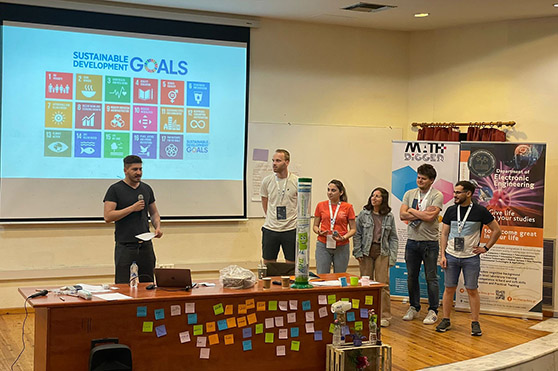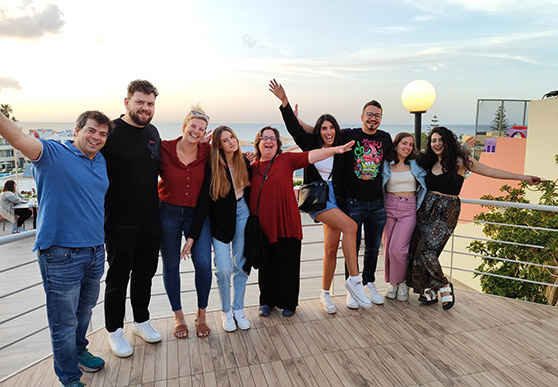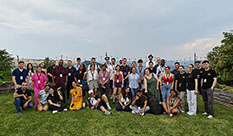More:
News & Stories
The “Blended Mobility” project bridges continents
The School of Multidisciplinary Studies at HIT participated in an interesting and unique project of the European Union.

In May 2023, a delegation of seven students as part of an international Multidisciplinary Research & Soft Skills course flew to HMU University in Crete, Greece, to take part in a cross-continental meeting with dozens of course participants from various European countries.
This is a unique course within the ERASMUS + program of the European Union, taught as part of the School of Multidisciplinary Studies at HIT under the leadership of Dr. Nava Shaked, whose goal is to train students in skills that support their core studies. Outstanding students who responded to an open call and passed the interviews were selected for the course. The course was led by Dr. Noga Gulst, and Dr. Elad Segev from the school.
The project was made possible thanks to the assistance of the international unit at HIT’s Research Authority. "This is an experience that they will cherish forever. We chose to bring the different voices and convey the experiences directly from the students" said Dr. Nava Shaked.

Hagar Gutstein, a student at the Faculty of Instructional Technologies’ direct track towards an M.A. said: "The course included diverse, enriching content and provided new perspectives on everyday situations. In addition to learning about soft skills, I felt that thanks to the integration of students from all over the world, I also got to practice Skills in interpersonal communication, differences between cultures, similar or different humor, trusting "strangers", patience, and above all a lot of learning from those simple experiences by being in English"
Lior Zitzer, a second-year Department of Visual Communication student, concludes: "It is exciting to realize what it means to be able it means to reflect on the world and experience all kinds of different cultures. Through food, people, lectures, and more. In particular, the fact that you are required to interact with students across Europe and break the ice for you made it easier The whole process. Since it is not easy to contact someone who is not only a foreigner but speaks a completely different fluent language, the framework made the situation much more accessible."
Tamar Zitzer, a second-year student at the Faculty of Industrial Engineering, and Technology Management says: "I had to deal with social situations that I would not have encountered in everyday life, I made connections with students from a variety of countries and fields of study and worked together with them in a joint project. The most significant part for me was dealing with independence and responsibility, promoting HIT and Israel, in front of other people from around the world".
Every year, the School for Multidisciplinary Studies offers unique courses that combine activity with an international university in projects in the fields of innovation and entrepreneurship.
- News & Events
International Week of Interdisciplinary Studies and Academic Collaborations in Crete
A substantial delegation of 16 students and four faculty members from HIT Holon Institute of Technology participated in week-long international activities and events at HMU-Hellenic Mediterranean University in Crete. ...


 Additional programs
Additional programs
